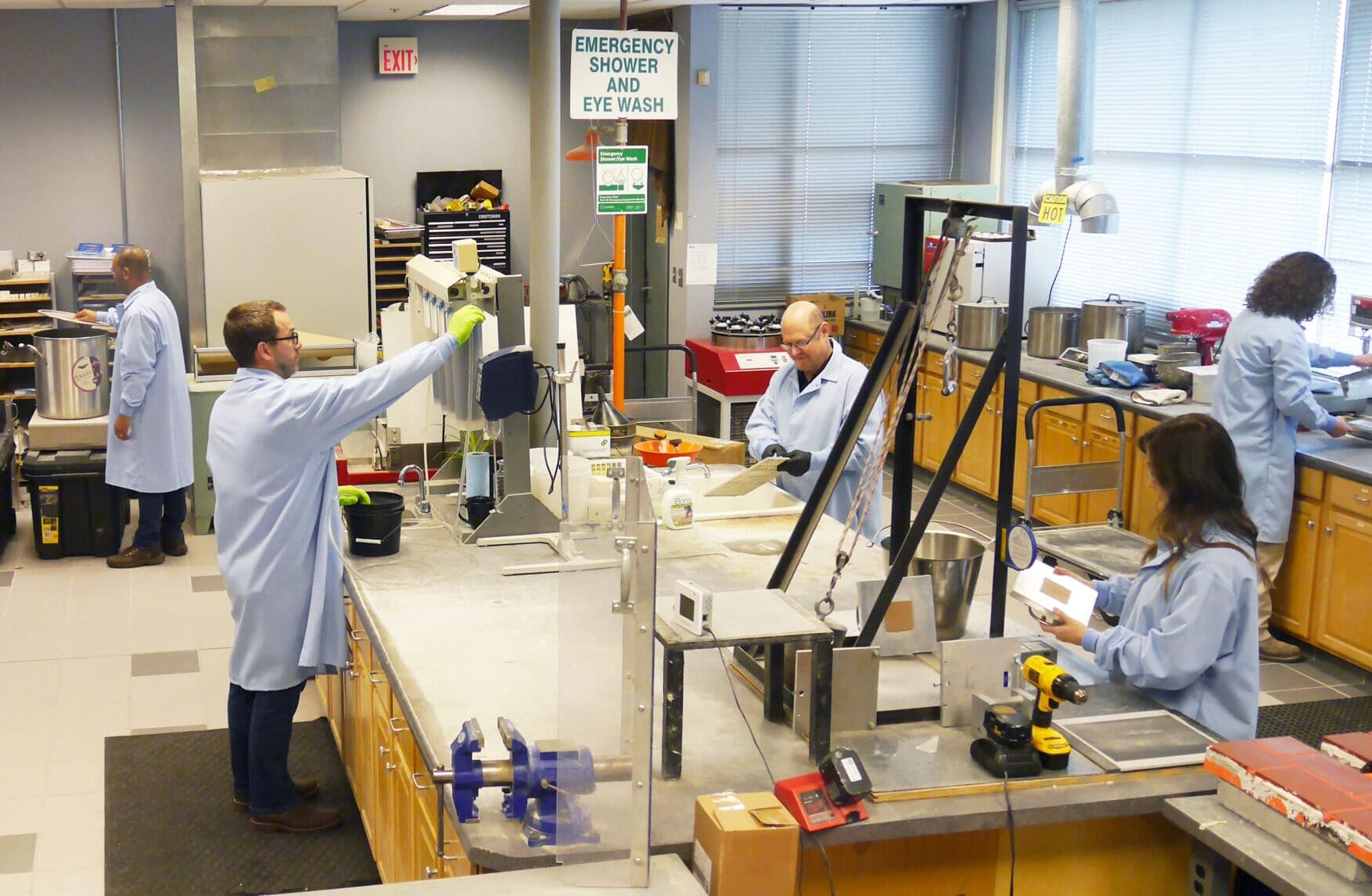How do you really know a product meets quality standards?
In today’s market, claims of performance, safety, and reliability are everywhere. But without independent verification, those claims are just words. Before a product makes its way into a showroom, onto a job site, or into the hands of a consumer, it should meet established criteria for performance.
These criteria don’t come from marketing claims or sales sheets—they come from laboratory testing that is independent, unbiased, and backed by recognized standards.
What Is Third-Party Testing?
As the driving force behind product credibility, third-party testing is the independent evaluation of a product, material, or system by an organization that is not involved in its manufacture, distribution, or sales. Tests are typically conducted per recognized standards or specifications to determine if a product performs as claimed.
Performance and compliance can mean the difference between success and failure or, more importantly, safety issues. Choosing not to have products third-party tested can have serious implications, especially in industries such as construction, healthcare, food and beverage, environmental services, automotive, consumer goods, and more.
Why Is Third-Party Testing Important?
Third-party testing is how the industry separates assumption from assurance. Assuming quality without proof is a risk no one should take.
Third-party testing removes potential bias, enhances transparency, and builds trust throughout the supply chain. By relying on a neutral and accredited laboratory for third-party testing, industry professionals can be confident that results are credible, and product data is reliable.
Whether verifying compliance with safety standards, assessing performance characteristics, or identifying causes of product failure, third-party testing is a vital tool for ensuring accountability and quality assurance.
Benefits of Third-Party Testing
Manufacturers
Independent testing ensures products meet industry standards and perform as intended, minimizing liability concerns. Additionally, having data from an independent laboratory can give manufacturers a market advantage by showing their products can be trusted, which enhances their reputation.
Distributors
Distributors benefit from independent testing by ensuring the products they sell meet expected quality and performance standards. Access to third-party data adds assurance that materials received from manufacturers align with what was promised, helping maintain customer trust and satisfaction.
Designers, Architects, and Specifiers
Third-party testing supports confident material selection by verifying manufacturer claims. By requiring independent data, designers and specifiers can ensure that products meet the necessary performance criteria for specific applications, ultimately supporting better project outcomes.
Consultants
Independent testing provides consultants with reliable data to support their analysis of product or installation failures. Experts in the lab can provide guidance on testing methods that can help with an analysis.
Installers
Having access to third-party testing data allows installers to rely on validated product information. This enables them to follow the correct standards for installation, helping to reduce errors and support successful, long-lasting project results.
Homeowners and End Users
For homeowners and consumers, third-party testing offers peace of mind. Knowing that a product has been independently evaluated provides confidence that it meets performance expectations, safety standards, and quality requirements.
Why an Accredited Laboratory Matters
Not all independent testing is created equal. Trust the results by selecting third-party testing by an accredited laboratory.
An accredited laboratory has undergone a third-party evaluation by an accrediting body to verify that it meets specific standards of quality and reliability. For example, IPA Laboratories is an ISO/IEC 17025-accredited laboratory through the ANSI National Accreditation Board. ISO/IEC 17025 is the international standard that specifies the requirements for the competence of testing and calibration laboratories.
Working with an accredited lab means that the results are not only credible but also recognized by regulatory agencies, certification bodies, and industry leaders. Choosing an accredited laboratory is key to ensuring that your test results are accurate and consistent.
A Trusted Resource for Reliable Results
In a world where products are increasingly complex, and regulations are becoming more rigorous, third-party testing is an essential step toward achieving performance, compliance, and reliability.
At International Product Assurance Laboratories, we specialize in delivering accurate, independent, ISO 17025 accredited testing services tailored to the unique needs of various industries.
To learn more about the benefits of third-party testing—or to explore our full range of services—reach out to us at testing@ipalaboratories.com or connect with me directly!
